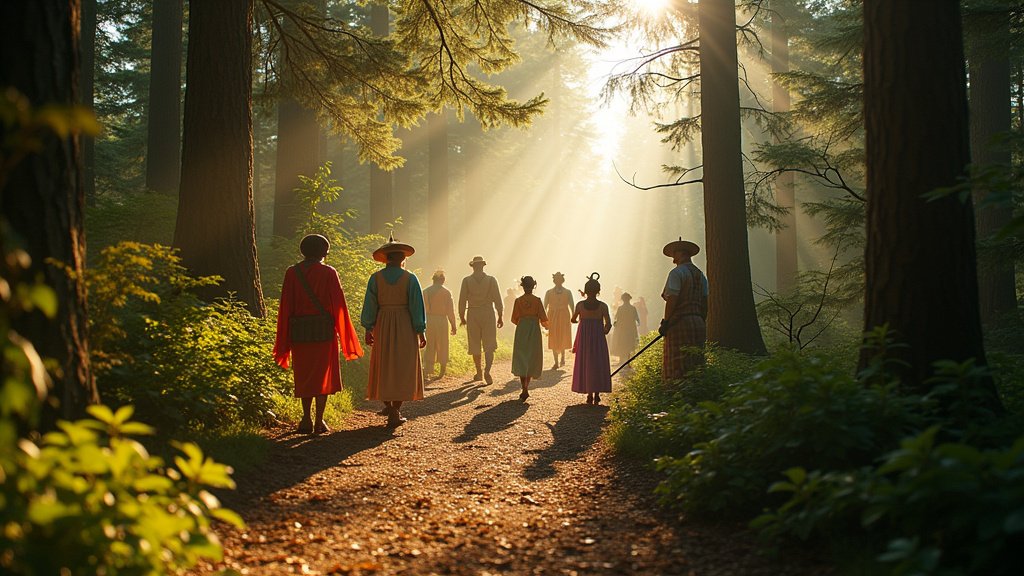Oregon, a state celebrated for its breathtaking landscapes and diverse wildlife, is at a pivotal moment, considering a new initiative to bolster its conservation efforts. The **Oregon 1% for Wildlife** proposal, aimed at securing dedicated funding for the state’s imperiled species and habitats, seeks to honor the legacy of renowned primatologist and conservationist Dr. Jane Goodall through collective action. This crucial legislative effort, set to be reintroduced in 2026 after nearly passing in 2025, proposes a modest increase to the state’s transient lodging tax (TLT) to ensure that the natural wonders that draw visitors can be preserved for future generations, supporting Oregon wildlife conservation.
The ‘Oregon 1% for Wildlife’ Proposal
At the heart of this conservation push is House Bill 2977, known as the “**Oregon 1% for Wildlife**” bill. The bill’s central tenet is to increase Oregon’s statewide transient lodging tax from its current 1.5% to 2.5%. This nearly 1% increase would be earmarked for the Recovering Oregon’s Wildlife Fund, managed by the Oregon Department of Fish and Wildlife (ODFW). The projected revenue of approximately $30 million annually would be vital for implementing Oregon’s State Wildlife Action Plan (SWAP), a comprehensive strategy to conserve species and habitats at greatest risk. This plan identifies over 300 species of greatest conservation need and 11 critical habitats requiring urgent attention. The **Oregon 1% for Wildlife** initiative is backed by a bipartisan coalition, signaling a broad recognition of the need for proactive natural resource protection measures.
The Critical Need for Conservation Funding in Oregon
Oregon’s State Wildlife Action Plan highlights a pressing reality: many of the state’s unique species and ecosystems are under significant threat. Habitat loss, climate change, invasive species, and development are taking a toll on everything from pollinators and birds to larger mammals and aquatic life, contributing to biodiversity loss prevention challenges. Currently, ODFW’s direct investment in implementing the SWAP represents a mere fraction of the necessary funding, with state general and lottery funds accounting for only 10-13% of its total budget. The vast majority of current funding originates from hunting and fishing licenses and excise taxes, which primarily supports game species, leaving 88% of Oregon’s wildlife species underfunded. The “**Oregon 1% for Wildlife**” bill aims to address this disparity by creating a stable, dedicated funding stream that moves beyond traditional user fees to encompass a broader spectrum of wildlife and habitat protection.
Tourism Funding Conservation: The Sustainability of Oregon’s Natural Appeal
Oregon’s allure for visitors is intrinsically linked to its abundant natural beauty and thriving wildlife. From the dramatic coastline and lush forests to the high desert and mountain ranges, tourists come to explore and enjoy these magnificent resources. The “**Oregon 1% for Wildlife**” proposal adopts a “user-pay” philosophy, recognizing that the majority of tourists—approximately 65% of whom are from out of state—directly benefit from and contribute to the wear and tear on these natural assets. By adding a small percentage to their lodging costs, visitors would directly fund the preservation of the very attractions that draw them to Oregon. This approach ensures that tourism, a significant economic driver supporting billions in spending and tens of thousands of jobs, remains sustainable by investing back into the natural capital it relies upon.
Legislative Journey and Opposition to Oregon 1% for Wildlife
The “**Oregon 1% for Wildlife**” bill has seen considerable momentum, having passed the House and narrowly missed becoming law in 2025. Its expected reintroduction in 2026 presents another opportunity for its passage. While proponents, including conservation groups and many outdoor enthusiasts, champion the bill as a forward-thinking solution for Oregon wildlife conservation, it has faced opposition. The hospitality and destination marketing sectors have raised concerns that an increase in the transient lodging tax could make Oregon less competitive for conventions and tourism. However, proponents counter that Oregon’s current statewide TLT is among the lowest in the nation, and even with the proposed increase, it would remain competitive. Furthermore, many individual cities and counties across Oregon impose their own lodging taxes, often at rates significantly higher than the proposed statewide rate, with average local rates reaching 7.6% and some coastal cities exceeding 9%.
Honoring Jane Goodall’s Enduring Legacy in Oregon
Jane Goodall’s decades of pioneering research on chimpanzees and her tireless advocacy for conservation have inspired generations worldwide. Her message of hope, emphasizing that individual actions can collectively create profound change, resonates deeply with the spirit of the “**Oregon 1% for Wildlife**” initiative. Jane Goodall conservation efforts are a global inspiration. Goodall has a personal connection to Oregon, having visited the Oregon Zoo and influenced the design of its Primate Forest habitat. Her philosophy aligns with the bill’s intent: to take collective action now to slow biodiversity loss and protect the natural world. This legislation represents a tangible way for Oregonians and visitors alike to honor her enduring commitment to wildlife and the environment.
A Balanced Future for Oregon’s Wildlife and Economy
The “**Oregon 1% for Wildlife**” bill presents Oregon with a unique opportunity to secure vital funding for its conservation priorities. By leveraging the transient lodging tax, the state can create a sustainable revenue stream that supports the preservation of its natural heritage, which in turn underpins its thriving tourism economy. As the bill moves toward its potential reintroduction, it offers a clear path forward for protecting Oregon’s diverse wildlife and habitats, ensuring that the state continues to be a place for exploration and enjoyment for all, today and for generations to come. This news underscores a growing global movement to integrate conservation funding into economic development strategies, fostering a more resilient and biodiverse future.




